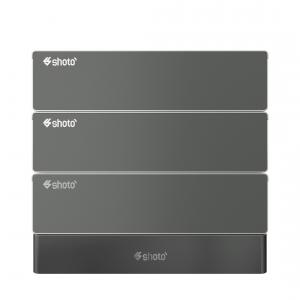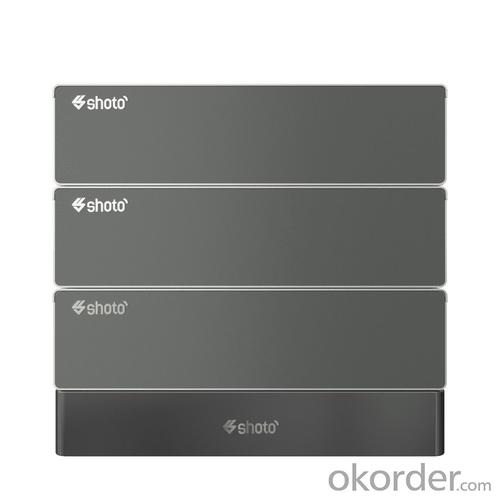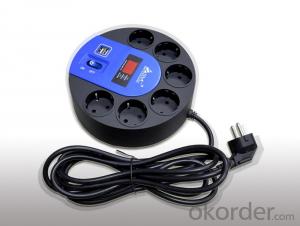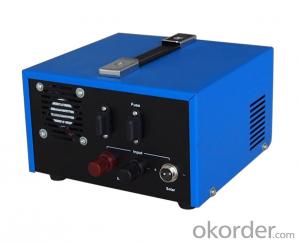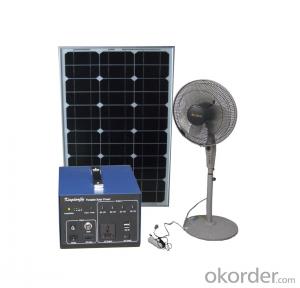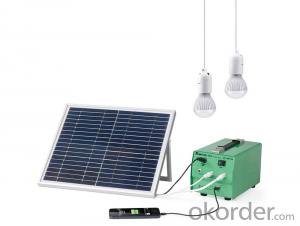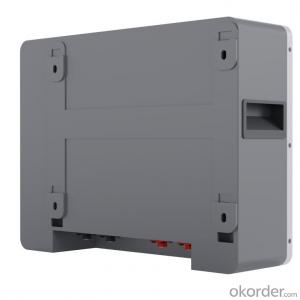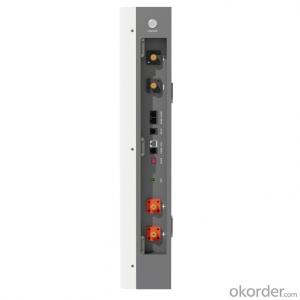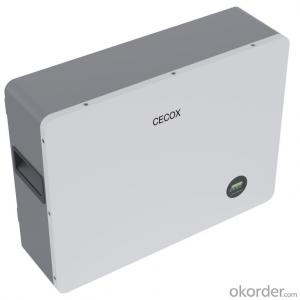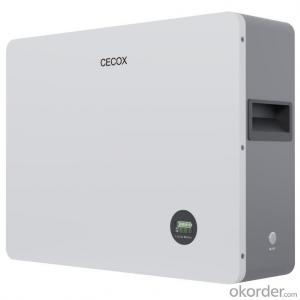Maui Solar Energy Systems Maui Shoto LifePO4 Battery Cells Wall Mount Power Rack 48V 200Ah 10.2kWH 6000Cycles Li-ion Battery
- Loading Port:
- SHANGHAI
- Payment Terms:
- TT OR LC
- Min Order Qty:
- 50 set
- Supply Capability:
- 5000 set/month
OKorder Service Pledge
Quality Product, Order Online Tracking, Timely Delivery
OKorder Financial Service
Credit Rating, Credit Services, Credit Purchasing
You Might Also Like
Specification
Application:
Home
Output Voltage (V):
51.2v
Work Time (h):
8 hours
Introduction:
Solar energy preferably used by domestic appliances, and additional Energy is stored in battery.
During the day, when battery is fully charged, the additional energy produced by solar can be sold and fed into the public .
At evening, the energy stored in the battery supplies electriciity to the domestic appliances.
At night, when the energy stored in the battery is depleted, the public grid supplies energy to the domestic appliances.
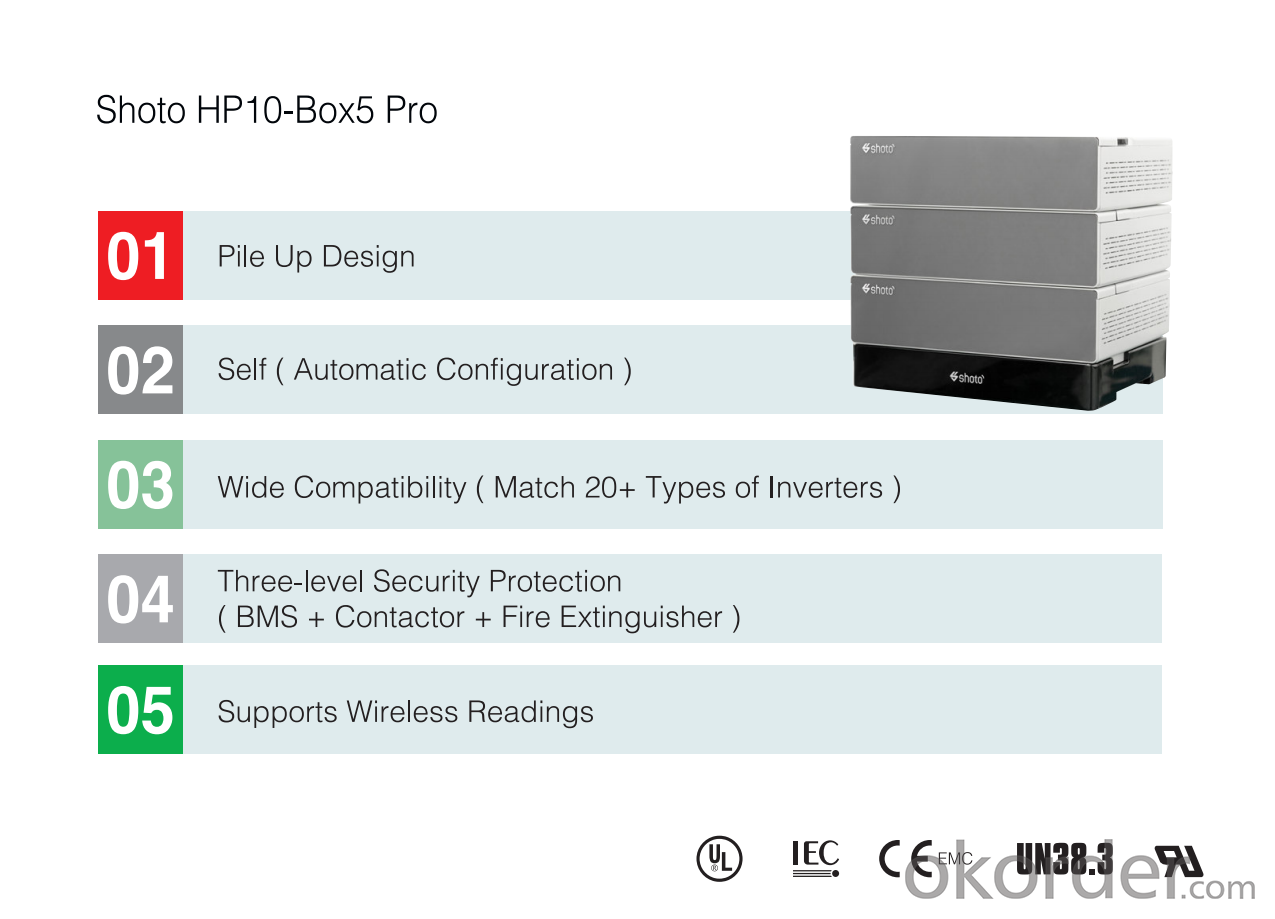
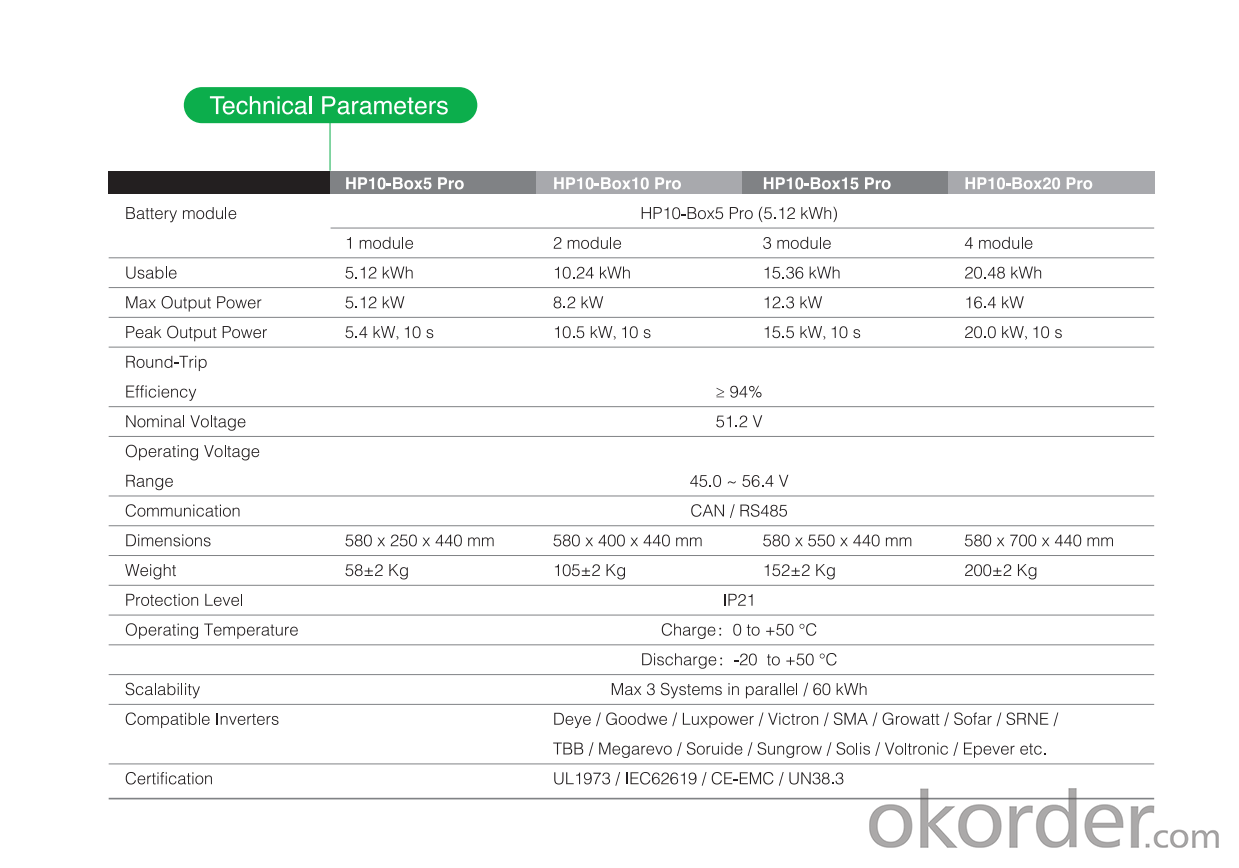
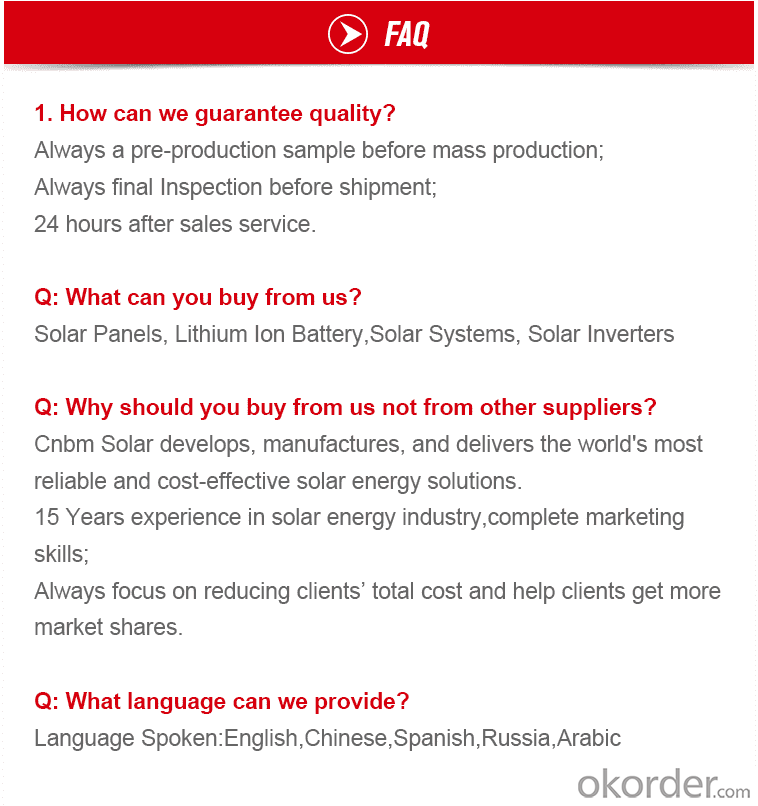
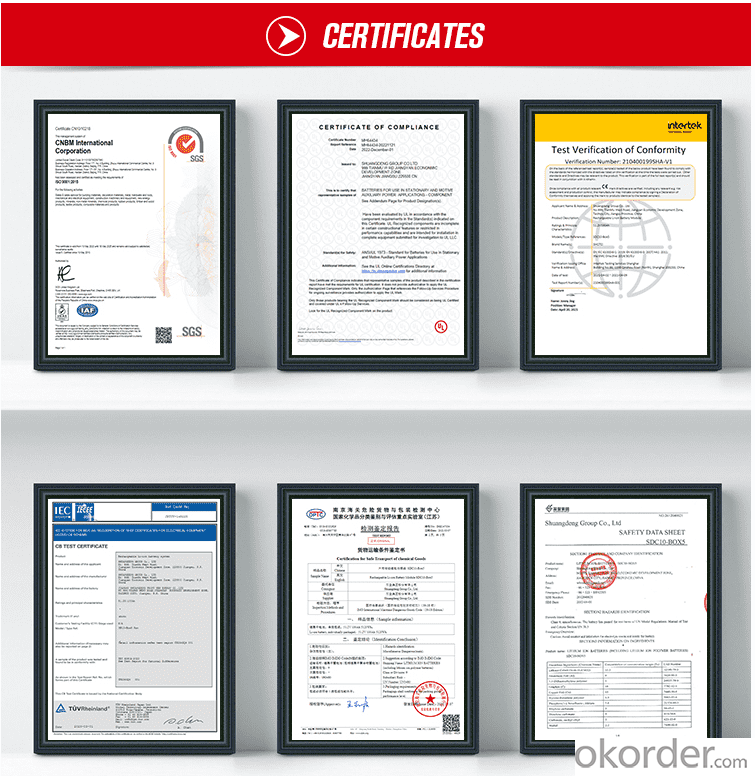
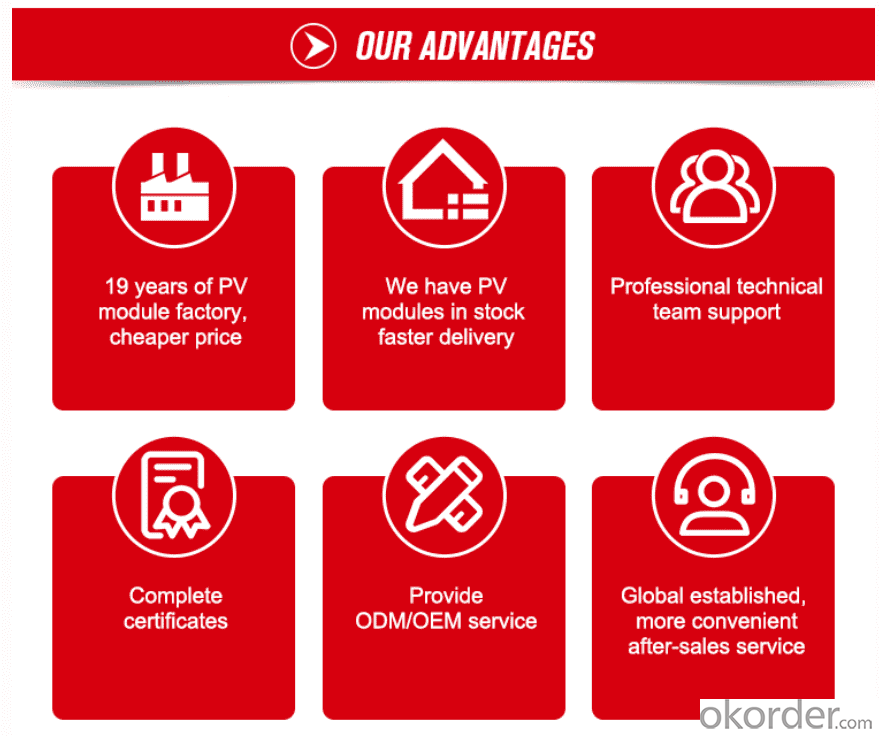

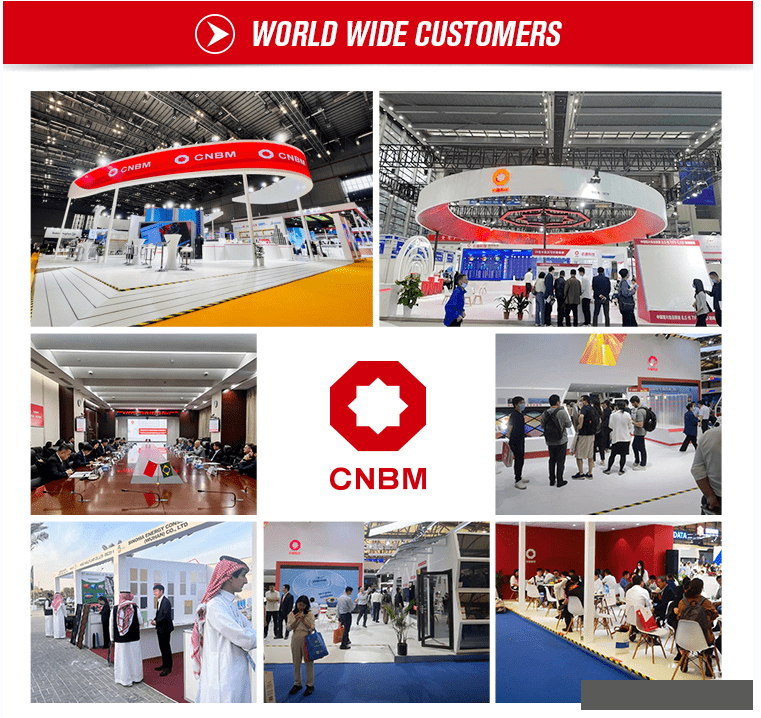
- Q: Can solar energy systems be used for water purification?
- Yes, solar energy systems can be used for water purification. Solar-powered systems, such as solar stills or solar water disinfection units, can harness the sun's energy to purify water by removing contaminants and killing harmful microbes. These systems are particularly useful in remote areas where access to clean water is limited but sunlight is abundant. By utilizing solar energy, these systems offer a sustainable and environmentally friendly solution to water purification.
- Q: Are there any risks of theft or vandalism with solar energy systems?
- Yes, there are some risks of theft or vandalism with solar energy systems. Solar panels and other equipment used in solar energy systems can be valuable and attractive targets for theft. Thieves may attempt to steal the panels or other components of the system to sell them on the black market. Additionally, solar energy systems are typically installed in remote or isolated areas, making them more vulnerable to theft as they may not be easily monitored. Vandalism is also a concern, as solar panels can be damaged or destroyed intentionally by individuals who may have a grudge against the owner or simply for the sake of causing damage. This can result in a loss of investment and disruption of energy production. To mitigate these risks, homeowners and businesses can take several precautions. Installing security measures such as surveillance cameras, motion sensors, or alarms can help deter theft or vandalism. Placing panels in more visible and accessible areas can also make them less attractive targets. Additionally, marking the panels with unique identifiers can make it more difficult for thieves to sell them. Insurance coverage is another important consideration to protect against theft or vandalism. Many insurance companies offer specific policies that cover solar energy systems, providing compensation in case of theft or damage. Overall, while the risks of theft or vandalism exist, they can be mitigated through preventive measures and insurance coverage. It is important for solar energy system owners to be aware of these risks and take appropriate steps to protect their investment.
- Q: Can solar energy systems be used for powering electric vehicle delivery services?
- Yes, solar energy systems can definitely be used for powering electric vehicle delivery services. Solar panels can be installed on the roofs of warehouses or delivery hubs to generate clean and renewable electricity. This solar energy can then be stored in batteries or directly used to charge the electric vehicles used for delivery services. By harnessing the power of the sun, electric delivery vehicles can be charged during the day and be ready to use for deliveries. This not only reduces the carbon footprint associated with delivery services but also helps to reduce operating costs by saving on fuel expenses. Furthermore, using solar energy for electric vehicle delivery services promotes sustainable practices and supports the transition to a greener and more sustainable future.
- Q: Can solar energy systems be used in areas with high levels of humidity?
- Yes, solar energy systems can be used in areas with high levels of humidity. While humidity can affect the overall efficiency of solar panels, modern solar technology is designed to withstand a wide range of environmental conditions, including high humidity. The key factor in determining the suitability of solar energy systems in humid areas is the proper maintenance and installation of the equipment. Regular cleaning and maintenance of solar panels can help mitigate any potential issues caused by humidity, such as dust or dirt buildup. Additionally, advancements in solar panel technology have made them more resistant to moisture and humidity, ensuring their durability and longevity even in humid areas. Therefore, solar energy systems can be effectively utilized in areas with high levels of humidity, providing a clean and renewable source of energy.
- Q: Can solar energy systems be used for electric vehicle charging stations?
- Yes, solar energy systems can be used for electric vehicle charging stations. By installing solar panels, the energy generated from the sun can be used to charge electric vehicles, making them more sustainable and reducing dependency on traditional energy sources. This integration of solar energy and electric vehicle charging helps promote renewable energy and contributes to a greener transportation system.
- Q: Can a solar energy system withstand extreme weather conditions?
- Yes, solar energy systems are designed to withstand extreme weather conditions. They are built using durable materials and are tested to ensure they can withstand high winds, heavy rain, and even hailstorms. Additionally, solar panels are designed to be weather-resistant and are installed securely to withstand severe weather events. Overall, solar energy systems are built to be resilient and can continue to function efficiently even in extreme weather conditions.
- Q: Are there any environmental impacts associated with solar energy systems?
- Yes, there are some environmental impacts associated with solar energy systems, although they are generally considered to be significantly less harmful than those associated with traditional energy sources. The production and disposal of solar panels can result in the release of greenhouse gases and other pollutants, especially when not properly managed. Additionally, the mining and extraction of raw materials used in solar panels, such as silicon, can have negative environmental consequences. However, these impacts are relatively minor compared to the emissions and pollution caused by fossil fuel-based energy generation. Furthermore, solar energy systems do not produce air or water pollution during operation and do not contribute to climate change. Overall, while there are some environmental impacts associated with solar energy systems, they are far outweighed by the long-term benefits of reducing greenhouse gas emissions and transitioning to clean and renewable energy sources.
- Q: Can solar energy systems be used for powering research laboratories?
- Yes, solar energy systems can definitely be used for powering research laboratories. Solar energy is a clean and renewable source of power that can be harnessed through photovoltaic (PV) panels or solar thermal systems. Research laboratories often require a significant amount of electricity to power various equipment, lighting, and ventilation systems, and solar energy can meet these energy demands effectively. Solar PV panels can be installed on the rooftop or open areas surrounding the laboratory to capture sunlight and convert it into electricity. This electricity can then be used to power the laboratory's infrastructure, including computers, microscopes, refrigeration units, and other specialized equipment. Additionally, excess electricity generated during the day can be stored in batteries or fed back into the grid for later use or to offset energy costs. Solar thermal systems, on the other hand, can be utilized to generate heat for laboratory processes that require heating, such as sterilization or chemical reactions. These systems use sunlight to heat a fluid, which can then be used directly or indirectly to provide heat to the laboratory. Implementing solar energy systems in research laboratories not only reduces the reliance on fossil fuels but also decreases greenhouse gas emissions and contributes to environmental sustainability. Moreover, it can lead to cost savings in the long term as solar energy is essentially free once the initial installation costs are recouped. However, it is important to consider the specific energy requirements of the research laboratory and conduct a comprehensive feasibility study before installing solar energy systems. Factors such as the laboratory's location, available sunlight, roof orientation, and space availability need to be taken into account to ensure optimal system performance. Additionally, the laboratory may need to have a backup power source or grid connection to ensure uninterrupted power supply during periods of low sunlight or high energy demand. Overall, solar energy systems are a viable and sustainable solution for powering research laboratories, providing clean and reliable energy to support scientific advancements.
- Q: Can a solar energy system be installed on a residential apartment complex?
- A residential apartment complex can have a solar energy system installed. Many apartment complexes already use solar energy systems to generate electricity. These systems can be located on the rooftop or on a nearby structure, depending on space and sunlight. Installing a solar energy system allows apartment complexes to reduce their dependence on traditional grid electricity, decrease their carbon footprint, and potentially save on electricity expenses. Furthermore, residents can enjoy lower energy bills and increased sustainability. However, it is crucial to take into account local regulations, building structure, and ownership arrangements before planning to install a solar energy system on a residential apartment complex.
- Q: Can solar energy systems be used for powering off-grid eco-lodges?
- Yes, solar energy systems can definitely be used for powering off-grid eco-lodges. Solar panels can be installed on the roofs of these lodges to capture sunlight and convert it into electricity. This renewable energy source can then power various electrical appliances, lighting, heating, and cooling systems within the lodges. By harnessing solar power, off-grid eco-lodges can operate sustainably and reduce their reliance on traditional grid electricity, leading to a more environmentally friendly and self-sufficient operation.
Send your message to us
Maui Solar Energy Systems Maui Shoto LifePO4 Battery Cells Wall Mount Power Rack 48V 200Ah 10.2kWH 6000Cycles Li-ion Battery
- Loading Port:
- SHANGHAI
- Payment Terms:
- TT OR LC
- Min Order Qty:
- 50 set
- Supply Capability:
- 5000 set/month
OKorder Service Pledge
Quality Product, Order Online Tracking, Timely Delivery
OKorder Financial Service
Credit Rating, Credit Services, Credit Purchasing
Similar products
Hot products
Hot Searches
Related keywords
